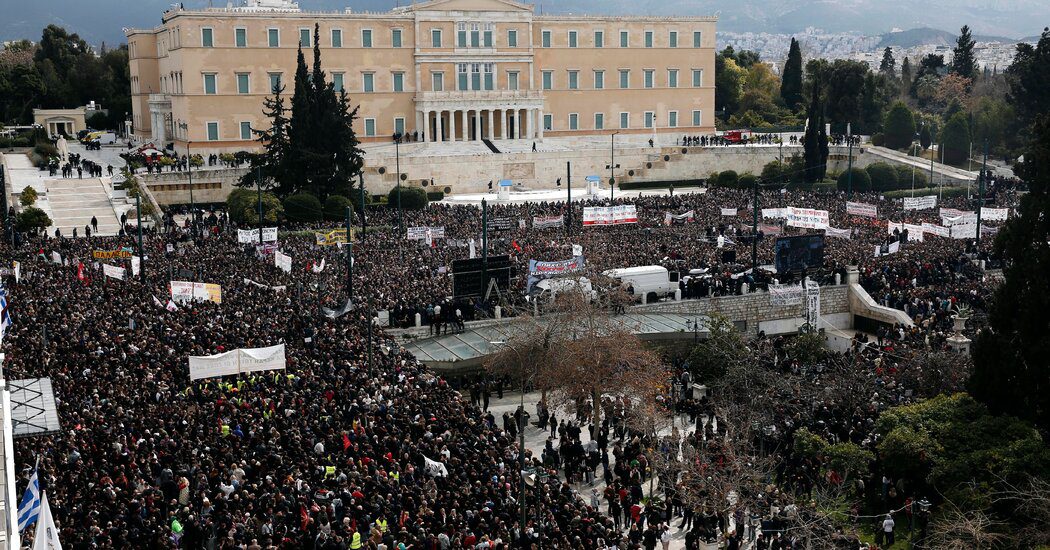

A nationwide general strike in Greece on Friday brought public transport to a standstill, with trains and ferries suspended, flights canceled, and public services disrupted as thousands of workers participated in the protest. This event marked the second anniversary of Greece’s most devastating train disaster, which claimed the lives of 57 individuals.
The 24-hour strike, organized by the country’s two largest labor unions, is part of ongoing demonstrations against the slow judicial inquiry into the tragedy. Many citizens remain frustrated with the lack of accountability, as no political figures have faced scrutiny for their roles in the incident.
### Key Details About the Strike
The strike encompassed both public and private sector employees, resulting in widespread demonstrations across Athens and other regions. Protesters demanded justice for the victims and improvements to rail safety standards.
All commercial flights to and from Greek airports were affected, while ferry and train services were halted. Some limited public transport remained operational in Athens to assist demonstrators in reaching protest sites. Although taxi drivers participated in the strike, volunteers provided free transportation to those attending the rallies.
The strike’s impact extended to educational institutions and healthcare facilities, as teachers and medical staff also joined in. Additionally, many legal professionals and paramedics walked off the job, leading numerous businesses to close shop. Several well-known artists have also canceled their scheduled performances in light of the strike.
This significant walkout reflects continuing public unrest and calls for accountability following the tragic accident, emphasizing the people’s demand for justice and enhanced safety measures in Greece’s transportation system.








